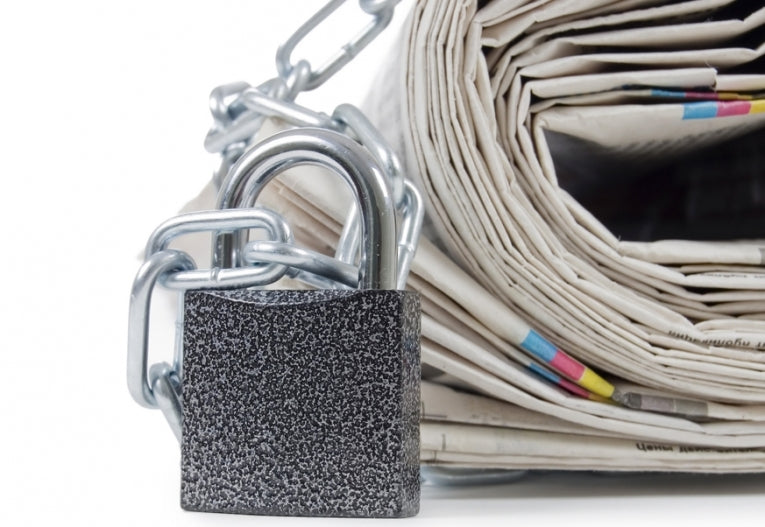3rd May was proclaimed World Press Freedom Day at the UN General Assembly in 1993 following a recommendation adopted at the twenty-sixth session of UNESCO's General Conference in late 1991.
Every year World Press Freedom Day celebrates the fundamental principles of press freedom; to evaluate press freedom around the world, to defend the media from attacks on their independence and to pay tribute to journalists who have lost their lives in the exercise of their profession.
A free, independent and pluralistic media environment, online and offline, must be one in which journalists, media workers, and social media producers can work safely and independently without the fear of being threatened or even killed. It needs to be an environment where attacks, intimidations, harassments, abductions, arbitrary imprisonments, and threats are the exceptions and not the norm.
Journalists (including citizen journalists), editors, publishers and online intermediaries alike should not be subjected to political or financial coercion and manipulation. They should especially be protected from threats to the security of themselves and their families.
Securing the safety of journalists and media workers is an urgent matter. More than 600 journalists and media workers had been killed in the last ten years. In other words, every week a journalist loses his or her life while bringing news and information to the public. These statistics highlight the relevance of the UN Plan of Action on the Safety of Journalists and the Issue of Impunity and its specific goal of mobilizing the UN family of agencies as well as other stakeholders including UN Member States, regional human rights bodies, NGO and media houses to collaborate in creating a safer environment for journalists.
There is enormous potential in the UN Plan of Action in bringing the full weight of the UN to bear on the challenges and in being a point of reference for others who share the concern to turn the tide. Already we are seeing the various UN mechanisms moving in the direction that contributes to the UN Plan of Action.
A resolution at the 2nd UN Inter-Agency Meeting in Vienna in 2012 implemented a concrete global, regional and national strategy that was adopted for the UN Plan of Action. Four countries, South Sudan, Iraq, Nepal and Pakistan, were identified to be amongst other interested countries where alignment of stakeholders could make a difference. Latin America was specifically acknowledged as a region where good work could be done under the auspices of the UN Plan and where lessons could be shared internationally.
As the UN Plan recognises, promoting the safety of journalists must not be constrained to after-the-fact action. Much more must be done for preventive mechanisms and for actions to address the root causes of violence against journalists and of impunity. This implies the need to deal with issues such as corruption, organized crime and an effective framework for the rule of law.
In addition, the existence of laws that can criminalize legitimate journalism, such as restrictive defamation laws or overly broad national security laws must be addressed. The challenge is to promote respect for international standards for freedom of expression as well as resolutions such as UN Security Council Resolution 1738 (2006).
Fundamental to the UN Plan is the insight that the experiences in one country or region can be useful for others trying to improve the safety of journalists. Compilation and sharing of up-to-date information and best practices and conducting international missions and investigations into particular cases can be highly beneficial. However, much work is still needed to achieve an optimum level of information exchange and joint learning and in adapting good practices to different regional and national contexts.
Just as importantly, World Press Freedom Day is a day of support for media that are targets for the restraint, or abolition, of press freedom. It is also a day of remembrance for those journalists who lost their lives in the exercise of their profession.
The day also serves as an occasion to inform citizens of violations of press freedom, with a reminder that in dozens of countries around the world publications are censored, fined, suspended and closed down, while journalists, editors and publishers are harassed, attacked, detained and even murdered.
It is a date to encourage and develop initiatives in favour of press freedom and to assess the state of press freedom worldwide.
Governments are reminded of the need to respect their commitment to press freedom and media professionals have the opportunity to reflect about issues of press freedom and professional ethics.










